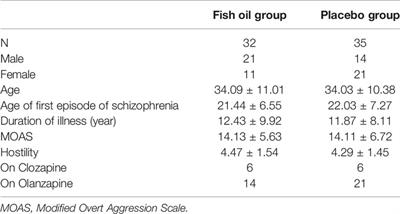This article discusses the results of the NUERAPRO trial that tried to replicate the seven-year follow-up study examining the relationship between omega-3 consumption and the risk of developing schizophrenia. The study found that omega-3 consumption didn’t affect the risk of psychosis.
Final Word? Omega-3's Don't Prevent Transition to Psychosis
Pam Harrison
November 30, 2016
Daily consumption of omega-3 polyunsaturated fatty acids (PUFAs) does not appear to prevent transition to psychosis in young patients at ultra–high risk, new research shows. However, investigators say this may not be the final word.
The study findings contradict previous results from the same group of researchers that suggested that PUFAs were superior to placebo in reducing the risk for transition to psychosis, not only while patients were taking the supplement but for a prolonged period thereafter.
"Omega-3's have neuroprotective and anti-inflammatory properties, while gray matter loss and inflammation have been associated with the pathophysiology of schizophrenia, so there is a strong biological rationale why omega-3 PUFAs may improve or prevent a psychotic episode," senior author Paul Amminger, MD, PhD, Orygen Youth Health, the National Center of Excellence in Youth Mental Health, the University of Melbourne, in Australia, told Medscape Medical News.
Dr Amminger was the lead author of both previous studies, which showed a strong protective effect from omega-3 PUFAs in ultra-high-risk patients in a similar prodromal state.
"And it is still possible that omega-3 fatty acid treatment is effective in a subpopulation of ultra-high-risk young people and that the broader group in our study masked this group," he said, adding, however, that the current study "clearly failed to replicate the findings of the original single-center trial."
The study was published online November 23 in JAMA Psychiatry.











